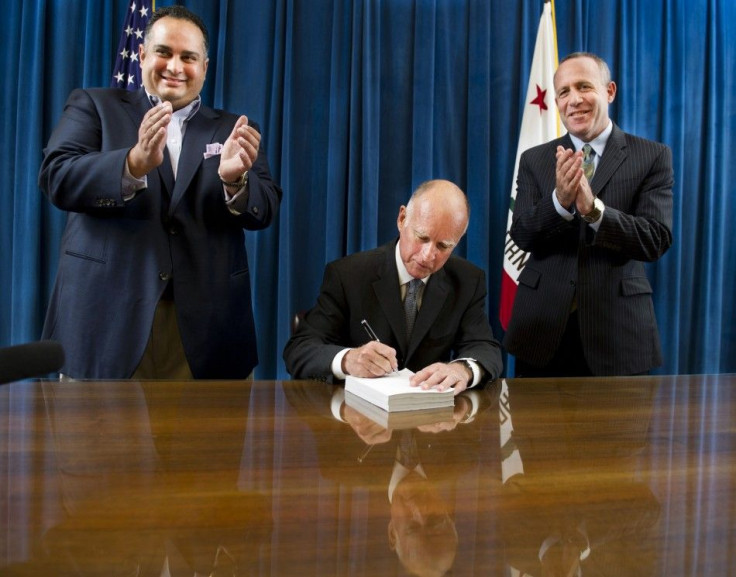Proposition 30: Excusing California's Inadequacy
Opinion

On October 1, California State University will email letters warning applicants that enrollment capacity will drop if Gov. Jerry Brown's Proposition 30 fails.
The measure would balance the state budget by temporarily raising the sales tax, as well as the income tax on people who make more than $250,000 per year. If it fails, automatic cuts will take $250 million from each of the state's college systems.
The Howard Jarvis Taxpayers Association has charged that the letter amounts to using government resources for a political campaign -- something CSU denies.
"We are not advocating one way or the other,” spokeswoman Claudia Keith told the Los Angeles Times.
Uh, what? That's a funny thing to say about an email that lays out the arguments for supporting the proposal. It tells students they will have a better chance of acceptance if they vote for it. It notes that the Board of Trustees has endorsed it. It states that not only will the budget be safer from cuts, but also speculates that it could actually increase funding. It includes a link to the Yes on 30 campaign website. The only mention of any argument against the proposal? A link to the No on 30 campaign – in the final line of the document.
Perhaps Keith has no idea what the word “advocating” means. Or she was crossing her fingers. Maybe she thinks that saying the university was not advocating means it wasn't. Like when someone thinks saying “I'm not trying to be mean, but...” cancels out whatever vile censure may come afterward.
“We are just laying out the facts of what the budget is and what impact this will have on our budget," Keith added.
Yet, it glosses over what may be the most important fact of all: These “impacts” are far from unintended externalities. The proposal will impact the fate of California's students because the governor planned it that way. Gov. Brown feels so entitled to taxpayer cash, he signed a budget that assumes funds from a tax increase. Meanwhile, California's schools -- and students -- hang in limbo, and must spend the first two months of the academic year wondering if the third will bring news of tragic cuts and tuition hikes.
The “proposal” all but forces people to pay up, blackmailing them with the noble cause of education. Furthermore, it gives only the illusion of a choice. If the tax increase doesn't pass, the state will just take the cash another way; on September 19, CSU approved yet another tuition hike in the event that this happens.
Californians hired Gov. Brown to make a balanced budget that fits their needs. When he ran for governor in 2010, he advertised "The knowledge and the know-how to get California working again. That's what I offer." So, what did this know-how look like when it came time to balance the budget?
Making tough choices? Deciding what needs cutting in a state that can't stop spending? Nope. His thought process went more like this: The expenses outweigh the revenue? No problem. We'll just take more cash.
A vote for Proposition 30 sends a few messages to the folks in Sacramento -- and to a nation considering similar proposals on a federal level to improve its flailing economy.
First, it reinforces the sense of entitlement to unlimited taxpayer money -- a sentiment already all-too rampant. Worse, it's not like California always uses its limited resources frugally. Sometimes, it uses them to do things like, oh, send out letters that lobby for even more. Unreal.
Second, it excuses a copout. By saving Gov. Brown from having to make tough choices, Proposition 30 kicks the can of California's financial crisis even further down the road. It's like plugging a hole in a ship with Silly Putty so you can sit, relax, and pretend it's not sinking – rather than confront the reality of the crisis and try to find a real solution.
And California is a sinking ship. Making it through school is the least of these kids' worries in a state whose unemployment rate is pushing 11 percent. And although the state contains only one-eighth of America's population, it accounts for one third-of welfare recipients. These numbers are staggering, and something must change. And asking residents to fork over even more money to an obviously failing system isn't it.
Katherine Timpf is a 2012 Robert Novak Fellow with the Phillips Foundation. Follow her on Twitter @kctimpf.
© Copyright IBTimes 2024. All rights reserved.











